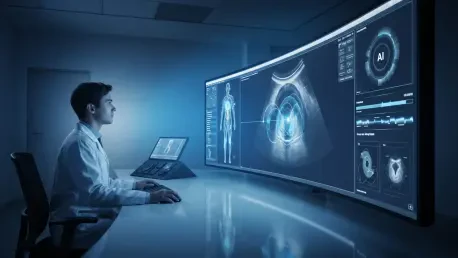

The achievement of a survival rate exceeding ninety-five percent for testicular cancer represents one of the most significant triumphs in the history of clinical oncology, primarily driven by the efficacy of cisplatin-based treatment protocols. However, this remarkable clinical success has

Today we're joined by Ivan Kairatov, a biopharma expert whose work at the intersection of technology and oncology is reshaping our understanding of cancer. We'll be exploring a breakthrough in liver cancer research, delving into the specific molecular triggers that drive tumor growth, the

A groundbreaking study has fundamentally altered the scientific understanding of prenatal exposure to per- and polyfluoroalkyl substances (PFAS), revealing that the chemical burden on newborns is substantially more widespread and complex than previously documented. By employing a novel,

When was the last time you comparison-shopped for an MRI? The federal government wagered that turning healthcare into a retail experience would save us all money. Here’s why that bet hasn't paid off A federal initiative promising to pull back the curtain on healthcare pricing has instead armed

For many individuals diagnosed with life-threatening blood cancers, the search for a suitable stem cell donor becomes a desperate race against time, a journey where hope can dwindle with each passing day that a match is not found. The standard of care, an allogeneic stem cell transplant, relies

Today, we're joined by Ivan Kairatov, a biopharma expert at the forefront of medical technology and innovation. We will be exploring the development and implications of a groundbreaking machine learning model that is reshaping our understanding of insulin resistance. Our conversation will delve

The intricate and often subtle patterns within a CT scan hold the key to early lung cancer detection, a task that has historically challenged even seasoned radiologists but is now being revolutionized by the pattern-recognition prowess of artificial intelligence. Convolutional Neural Networks

The ability to precisely visualize and manipulate molecular machinery inside living cells has long represented a monumental challenge in biological research, but a new fusion of artificial intelligence and protein engineering is rapidly turning this ambition into reality. The development of

With the rise of GLP-1 agonists for weight management, the real-world patient experience often diverges from the neat narratives of clinical trials. To explore this complex landscape, we are speaking with biopharma expert Ivan Kairatov. Drawing on a recent analysis of hundreds of online user

A strategic partnership expansion between global med-tech leader Siemens Healthineers and the world-renowned Mayo Clinic is set to forge a new path in healthcare, directly addressing some of the most persistent challenges in modern medicine. This powerful collaboration aims to harness cutting-edge
ITCurated uses cookies to personalize your experience on our website. By continuing to use this site, you agree to our Cookie Policy